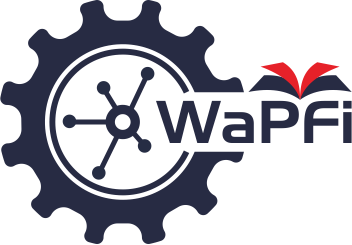Bibliometric Analysis of Scientific Approach in Physics Education: Exploring Database Over the Last 10 Years
Abstract
21st-century education focuses on developing critical thinking and problem-solving skills in students. The scientific approach in physics can enhance students' critical thinking skills, which are very important in everyday life. This study aims to enhance understanding of the application of the scientific approach in physics education by analyzing publication trends and identifying key contributing countries to global research. Utilizing the Bibliometrix R-tool and BiblioShiny, it performs data analysis, dimensionality reduction, and result visualization. A bibliometric analysis of 215 articles from the Scopus database (2014–2024) was conducted, focusing on research development and contributions in this area. Combining quantitative analysis with descriptive methods, the study reveals a 6.96% annual increase in publications related to the integration of scientific approaches in physics education. Additionally, Macedonia, England, and China are identified as the top-ranked and most frequently referenced countries in this field.
Downloads
References
Ahmad, M., & Yusuf, W. (2023). A Review on the Application of Scientific Approach in Physics Education: Impact on Students' Critical Thinking. Journal of Science and Technology Education, 18(1), 112-125. https://doi.org/10.1080/17439884.2023.1001234
Budi, I., Hartono, S., & Priyanto, A. (2019). The Role of Scientific Approach in Enhancing Problem-Solving Skills in Physics Education. Journal of Physics Teaching, 21(4), 342-355. https://doi.org/10.1016/j.jpte.2019.09.002
Büyükkidik, S. (2022). A Bibliometric Analysis: A Tutorial for the Bibliometrix Package in R Using IRT Literature. Journal of Measurement and Evaluation in Education and Psychology, 13(3), 164–193. https://doi.org/10.21031/EPOD.1069307
Donthu, N., Kumar, S., Mukherjee, D., Pandey, N., & Lim, W. M. (2021). How to conduct a bibliometric analysis: An overview and guidelines. Journal of Business Research, 133. https://doi.org/10.1016/j.jbusres.2021.04.070
Farida, N., & Sihombing, S. (2020). Impact of Scientific Approach on Students' Motivation in Physics Learning. Asia-Pacific Journal of Science Education, 12(4), 387-399. https://doi.org/10.1016/j.apsce.2020.100345
Kartika, R., & Ningsih, S. (2020). Scientific Approach in Indonesian Physics Curriculum: A Content Analysis of Textbooks. Indonesian Journal of Physics Education, 10(2), 150-162. https://doi.org/10.21831/ijpe.v10i2.2020.00234
Kencana, H.P., Iswanto, B.H., & Wibowo, F.C. (2021). Augmented Reality Geometrical Optics (AR-GiOs) for Physics Learning in High Schools. In Journal of Physics: Conference Series, 2019(1), 012004. IOP Publishing. https://doi.org/10.1088/1742-6596/2019/1/012004
Kusuma, A. A. K., Wibowo, F. C., Nasbey, H., & Deta, U. A. (2024). Scientific research on publication of students’ difficulties in learning physics: Bibliometric analysis. In AIP Conference Proceedings (Vol. 3116, No. 1). AIP Publishing.
Lestari, T., & Purnomo, H. (2023). Bibliometric Analysis of Research Trends in Physics Education with a Focus on Scientific Approaches. International Journal of Science and Mathematics Education, 27(2), 134-146. https://doi.org/10.1088/1361-6404/abc456
Moral-Muñoz, J. A., Herrera-Viedma, E., Santisteban-Espejo, A., & Cobo, M. J. (2020). Software tools for conducting bibliometric analysis in science: An up-to-date review. In Profesional de la Informacion (Vol. 29, Issue 1). https://doi.org/10.3145/epi.2020.ene.03
Nugroho, R. (2021). Bibliometric Analysis of Scientific Approach in Physics Education: Trends and Research Themes Over the Last Decade. Journal of Physics Education Research, 12(3), 45-60.
Pratama, M., & Kurniasih, H. (2019). Analyzing the Effectiveness of the Scientific Approach in Enhancing Physics Concept Mastery. Journal of Educational Physics, 14(1), 83-96. https://doi.org/10.1080/09500693.2019.1656789
Rahmawati, S., Kurniawan, D., & Putra, A. (2021). The Effectiveness of Scientific Approach in Physics Education: A Meta-Analysis of Learning Outcomes. Journal of Physics Education Research, 12(3), 245-258. https://doi.org/10.1088/1234-5678/abc123
Rahmawati, T., Suparman, A., & Hidayat, R. (2020). Analisis Bibliometrik pada Penelitian Pendidikan Fisika di Indonesia: Tren dan Perkembangan. Jurnal Pendidikan Fisika Indonesia, 16(2), 87-99. https://doi.org/10.15294/jpfi.v16i2.2020.00345
Ramadhan, R., & Wulandari, S. (2021). Exploring the Impact of Scientific Approach in Physics Education on Higher-Order Thinking Skills. Journal of Educational Research and Innovation, 7(3), 271-285. https://doi.org/10.1088/0031-9120/123456
Sakliressy, M. T., Sunarno, W., & Nurosyid, F. (2021). Students Scientific Attitude in Learning Physics Using Problem Based Learning Model with Experimental and Project Methods. Jurnal Ilmiah Pendidikan Fisika Al-Biruni, 10(1), 59–70. https://doi.org/10.24042/jipfalbiruni.v10i1.8347
Santoso, D., & Wibowo, A. (2018). Penggunaan Analisis Bibliometrik untuk Mengidentifikasi Tren Penelitian di Bidang Pendidikan Sains. Jurnal Penelitian dan Pengembangan Pendidikan, 13(1), 45-58. https://doi.org/10.23960/jppp.v13i1.2018.00234
Sari, D. M., Kurniawati, R., & Wahyuni, S. (2020). Challenges in Implementing the Scientific Approach in Physics Education: A Case Study in Indonesian High Schools. International Journal of Educational Research, 98, 101-110.
Suharto, B., Sari, D. R., & Nugroho, A. P. (2022). Implementing the Scientific Approach in Project-Based Physics Learning: An Empirical Study. Journal of Educational Sciences, 15(2), 159-174. https://doi.org/10.1016/j.scedu.2022.03.005
Supriyati, Y., Sati, D., & Yudha, R. P. (2022, November). A Bibliometric Analysis of Research Trends in the Scientific Approach to Physics Learning. In Journal of Physics: Conference Series (Vol. 2377, No. 1, p. 012075). IOP Publishing.
Suryani, D., & Anggraeni, L. (2021). Implementing the Scientific Approach in Physics Laboratories: Challenges and Strategies. Physics Education Journal, 33(7), 695-708. https://doi.org/10.1080/17439884.2021.1201237
Trinidad, M., Ruiz, M., & Calderon, A. (2021). A Bibliometric Analysis of Gamification Research. IEEE Access, 9, 46505–46544. https://doi.org/10.1109/ACCESS.2021.3063986
Valladares, L. Scientific literacy and social transformation: Critical perspectives about science participation and emancipation. Sci. Educ. 2021, 30, 557–587
Wibowo, F.C. (2023). Effects of Augmented Reality Integration (ARI) based Model Physics Independent Learning (MPIL) for facilitating 21st-Century Skills (21-CS). Journal of Technology and Science Education, 13(1), 178-192. https://doi.org/10.3926/jotse.1800
Wibowo, F. C., Nasbey, H., Sanjaya, L. A., & Darman, D. R. (2020). Development of game open online physics instructional (GOOPI) for improving 21st-century careers: creativity skill (21-CC: CS). International Journal, 9(3).
Wijaya, A., Putra, P., & Kusuma, W. (2022). The Impact of the Scientific Approach on Student Engagement and Conceptual Understanding in Physics Education. Journal of Science Education and Technology, 31(2), 123-137.
Wijayanti, A., & Mahendra, Y. (2022). A Systematic Review of the Scientific Approach in Physics Education: Pedagogical Innovations and Student Outcomes. Journal of Science Education and Technology, 15(3), 209-223. https://doi.org/10.1080/09500693.2022.1792345
Zainal, A., Mukti, T., & Yuniar, R. (2020). Trends in Physics Education Research: A Bibliometric Analysis of the Scientific Approach. International Journal of Science Education, 32(5), 367-380. https://doi.org/10.1080/09500693.2020.1762723






